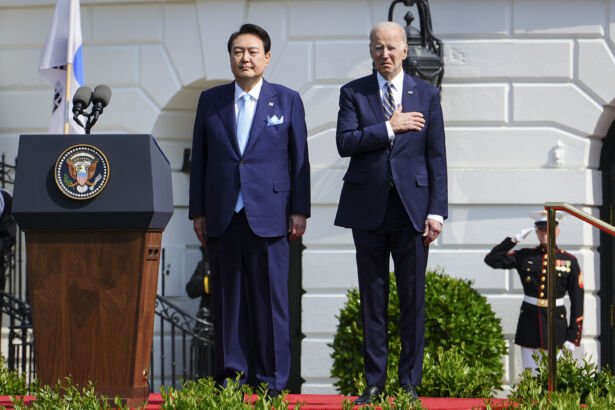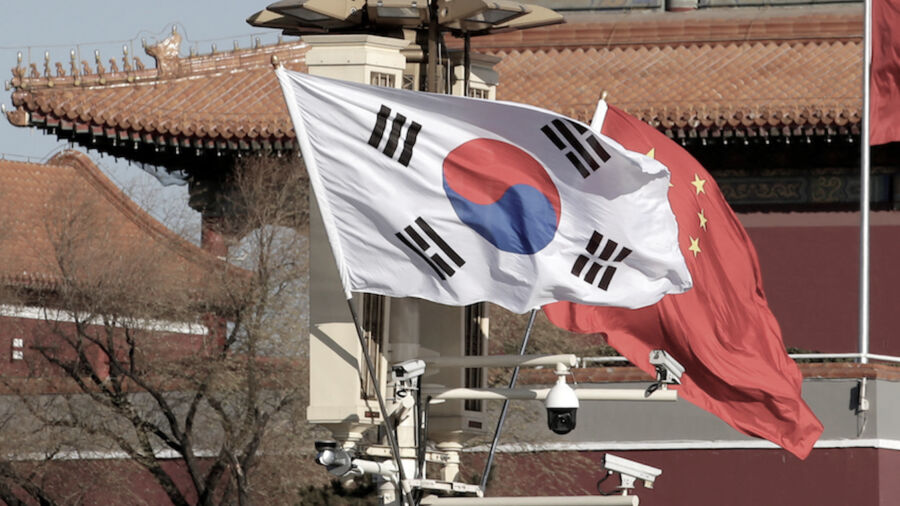South Korea on Friday summoned China’s top envoy to protest against his “provocative” remarks on United States-South Korea relations, saying that such an act amounts to interference in internal affairs.
Chinese envoy Xing Haiming made the remarks during a meeting with South Korean opposition leader Lee Jae-myung on Thursday, in which he urged South Korea to “get rid of the interference of external factors when handling relations with China.”
“China-ROK relations are currently encountering considerable difficulties. Frankly speaking, the responsibility for this does not lie with China,” he said, using South Korea’s official name, the Republic of Korea.
“The United States is trying its best to suppress China. Some people bet that the United States will win and China will lose,” the envoy added. “Those who bet against China will regret it in the future.”
Xing further said the Taiwan issue is at the core of China’s interest, and South Korea should respect that.
‘Went Too Far’
South Korean First Vice Foreign Minister Chang Ho-jin “sternly warned” that Xing’s remarks are a violation of diplomatic protocol and possibly constituted interference in internal affairs.
South Korea’s Foreign Minister Park Jin also condemned the envoy’s actions, saying that Xing “went too far,” Yonhap News Agency reported.
“There are diplomatic norms, and the role of an ambassador is to enhance friendship, not to spread misunderstandings,” Park told reporters.
However, Chinese Foreign Ministry spokesperson Wang Wenbin defended Xing’s actions and reiterated the envoy’s stance that China is not to blame for the challenges in China-South Korea relations.
“It is part of ambassador Xing’s job to have extensive engagement with the ROK government, political parties, and people from all walks of life, exchange views on bilateral relations and issues of mutual interest, and share China’s position and concerns,” Wang told reporters.
China views Taiwan as its own and has vowed to seize the self-ruling island by any means necessary. South Korean President Yoon Suk-yeol said in April that he opposed attempts to change the status quo in the Taiwan Strait.
“These tensions occurred because of the attempts to change the status quo by force, and we together with the international community absolutely oppose such a change,” he said in an interview with Reuters.
“The Taiwan issue is not simply an issue between China and Taiwan but, like the issue of North Korea, it is a global issue,” Yoon added.
US-South Korea Washington Declaration
On April 26, Yoon and President Joe Biden signed the Washington Declaration that outlines a set of U.S. extended deterrence measures, which drew criticism from Chinese state media.

The state-run Global Times on April 29 suggested that “if Seoul ignores warnings from China, Russia, and North Korea and completely executes U.S. order for ‘extended deterrence’ in the region, South Korea will likely face retaliation from China, Russia, and North Korea.”
When asked about Beijing’s outcry against the signing of the Washington Declaration, Yoon said that South Korea has “no choice” but to strengthen its alliance with the United States.
“If [Beijing] doesn’t take part at all in the sanctions against [North Korea’s] violations of U.N. Security Council resolutions, what do they want us to do? We’re left with no choice,” he said.
“If they want to take issue with us and criticize us for adopting the Washington Declaration and upgrading our security cooperation to one that is nuclear-based, they should reduce the nuclear threat or at least abide by international law and stick to U.N. Security Council sanctions against [North Korea],” he added.
Yoon said that even the former South Korean President, Moon Jae-in, who was Beijing-friendly, was treated poorly when he visited China, adding that only by forming a Korea-U.S.-Japan alliance would Beijing not treat South Korea with impunity.
Lisa Bian and Sean Tseng contributed to this report.
From The Epoch Times


